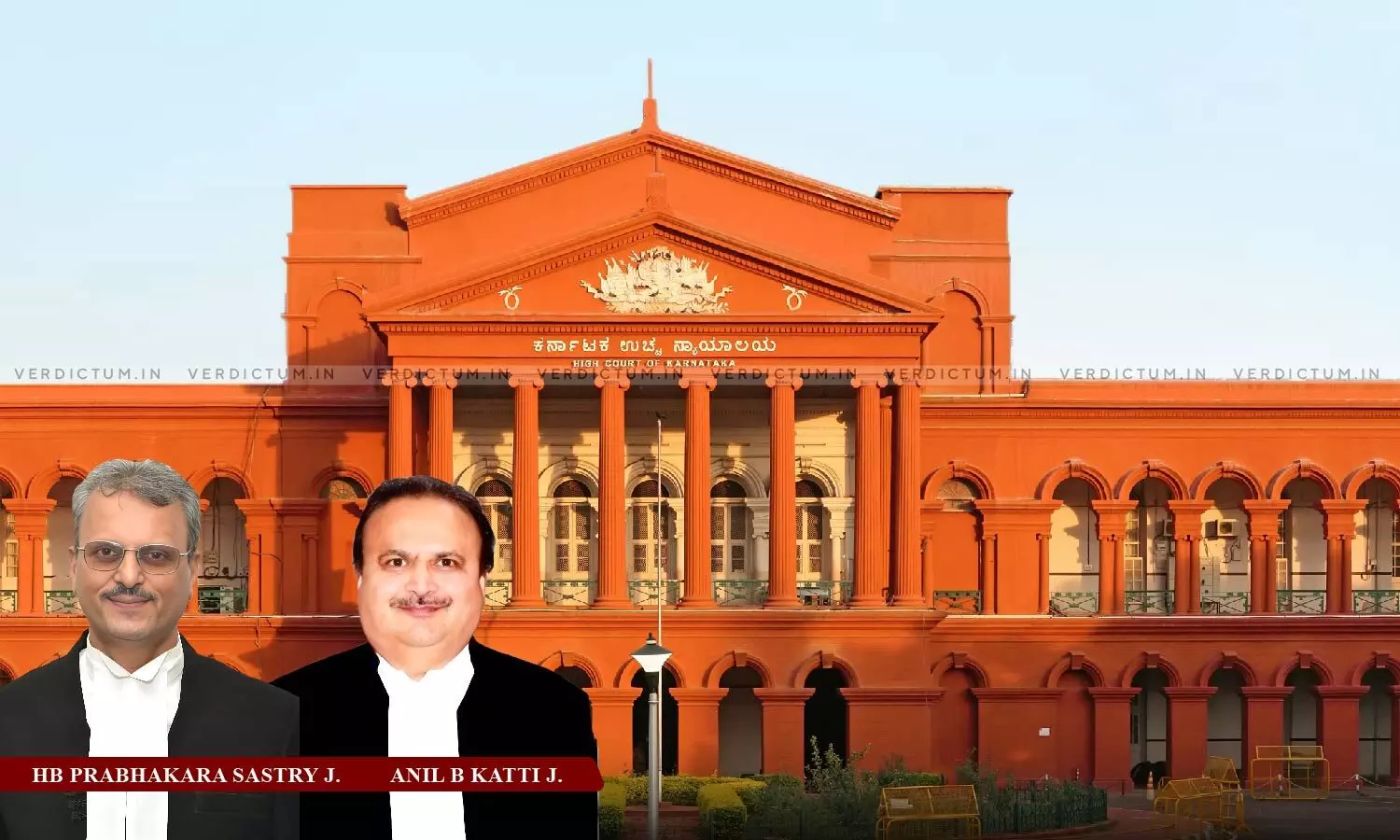
Last Seen Theory U/s. 106 Of Evidence Act Does Not Directly Operate Against Either Husband Or Wife Staying Under Same Roof- Karnataka HC
 |
|A Karnataka High Court Bench of Justice HB Prabhakara Sastry and Justice Anil B Katti has observed that the "last seen theory" under Section 106 of the Evidence Act does not directly operate against either a husband or a wife staying under the same roof as being the last person seen with the deceased.
In that context, the Court placed reliance on the case of Shivaji Chintappa Patil -vs- State of Maharashtra, and held that, "Section 106 of the Evidence Act does not directly operate against either a husband or a wife staying under the same roof and being last person seen with the deceased. Section 106 does not absolve the prosecution of discharging its primary burden of proving the prosecution case beyond reasonable doubt."
It was further clarified that "It is only when the prosecution has led evidence which, if believed, will sustain a conviction, or which makes out a prima facie case, that question arises of considering the facts of which burden of proof would lie upon the accused."
Additional SPP BN Jagadeesha appeared for the appellant, while Counsel HB Chandrashekar appeared for the respondent.
In this case, the accused and the deceased were a married couple. The deceased had a persistent alcohol addiction which led to frequent disputes and physical altercations with his wife.
On July 31, 2013, the complainant, the deceased's younger brother, received a call informing him of his brother's murder. He arrived at their house to find a lifeless, bloodied body beneath a cot. The accused, his sister-in-law, was present and admitted to assaulting the deceased with a chopper during an altercation provoked by his demands for money to fuel his drinking habit.
Despite her plea to keep the matter within the family, a police complaint was filed, leading to an investigation and a charge sheet for murder under IPC Section 302. Following a trial, where the accused pleaded not guilty, the Sessions Judge's Court acquitted her on November 18, 2015.
The State appealed the acquittal before the High Court.
On analyzing the evidence, the Court concluded that there existed several doubts in the case of the prosecution. In that context, it was said that, "Even though the date, time and place of death of the deceased Mahadevaswamy stands proved by the prosecution, so also, the nature of death of Mahadevaswamy is also proved as homicidal, however, several of the doubts crept in the case of the prosecution about the involvement of the accused in the homicidal death of the deceased Mahadevaswamy had left several of the gaps in the chain of circumstances."
Observing that the prosecution did not prove all the links in the chain of circumstances, the Court held that the benefit of the doubt had to be given to the accused. The Court further clarified that merely the alleged last-seen theory could not be taken as the sole criteria to hold the accused guilty.
In light of the same, the Court dismissed the appeal, while observing that, "Since it is analysing the evidence placed before it in its proper perspective, the Sessions Judge's Court has rightly acquitted the accused of the alleged offence, we do not find any reasons to interfere in it."
Cause Title: State of Karnataka vs Bhramaramba
Click here to read/download the Judgment